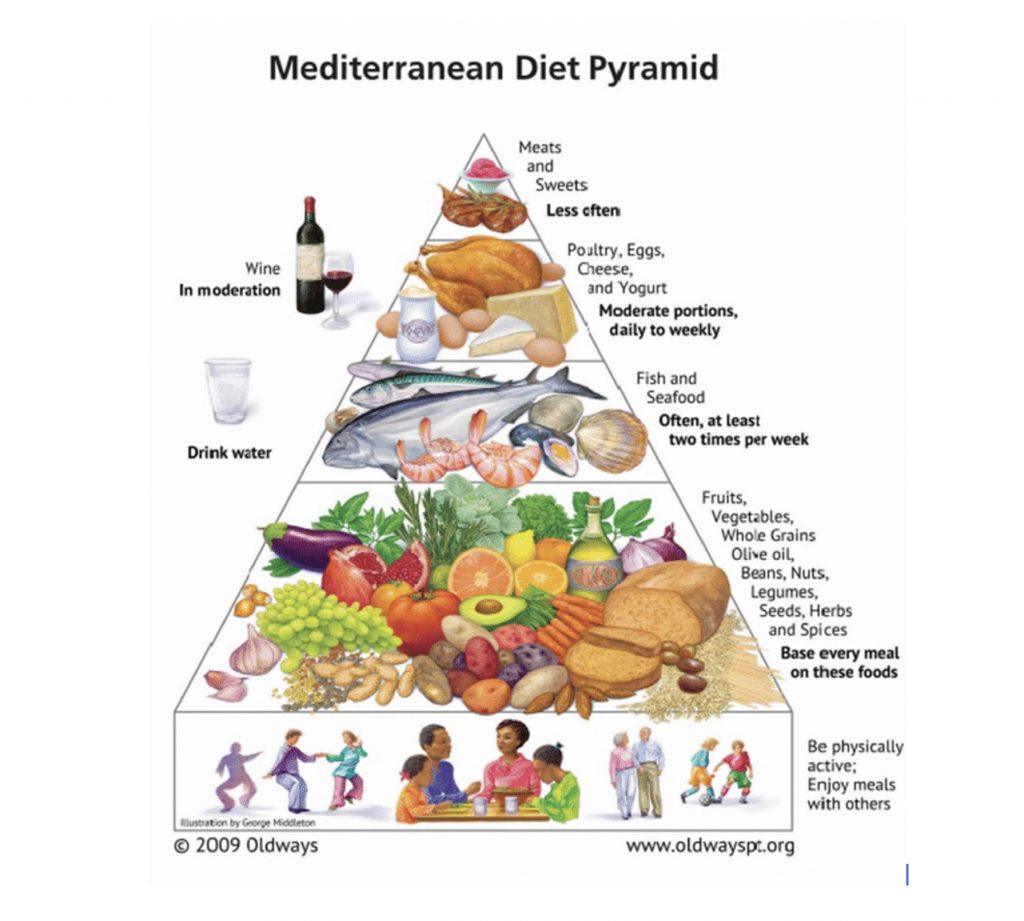The Mediterranean diet is not “just another diet”; Rather it is a “way of eating.”
Unlike restrictive diet plans the Mediterranean diet guidelines provide suggested eating patterns, and there are no specialized foods, shakes, or supplements required.
If you check online for information about the Mediterranean diet you may come across several slightly different versions but they all have the same basic ideas:
- Eat more plant foods (vegetables, fruits, whole grains, legumes)
- Include healthy fats (olive oil, nuts, seeds)
- Limit saturated and trans fat (butter, palm oil)
- Choose low fat dairy if you are having it
- Replace red /processed meat with legumes, fish, poultry or eggs most of the time
- Have fish/seafood at least a couple times per week
- Save the sweets for special occasions
- Make water your drink of choice most often
The Mediterranean diet is also about more than just food. As you will see in the image, the foundation of the pyramid includes enjoying meals with others, and being active daily. I think this is a very important point to consider, and part of what makes this diet pattern more sustainable. Have you ever declined a social engagement, or had anxiety before a family dinner knowing that the foods available would go against your diet? Food is part of so many traditions and customs, and studies have shown that sharing communal meals improves quality of life and mental health. The Mediterranean diet pattern encourages this, and because there are no “illegal” foods, this can actually happen. Plus, when you are allowed to do things you enjoy you are more likely to stick with it!
Of course you are still wondering WHY. From a health perspective, why is this diet superior? Why has my ND/MD/RD suggested this over others? This diet is low in saturated fat, trans fat, sodium, and simple sugars while being high in monounsaturated fats (the good ones!), fibre, and antioxidants. Because of this, and its higher adherence rate, the diet has the potential to:
- Reduce the risk of developing heart disease, stroke, and type 2 diabetes
- Improve blood sugar control in those with preexisting type 2 diabetes
- Delay the development of alzheimer’s and dementia
When combined with a calorie reduction, the Mediterranean diet can also be an effective, and sustainable weight loss intervention.
Are you still wondering whether or not this diet is right for you?
Are you convinced but not sure where to start?
When you are ready, we will be here to assist you with taking the next steps to a healthier you!





